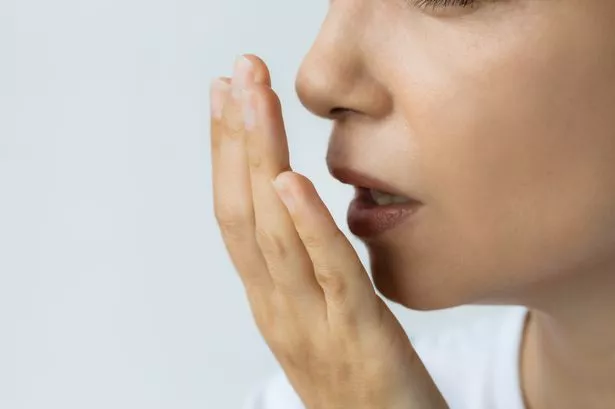UPDATE: A new warning from dentist Dr. Mohammed Ali at Emerdency highlights that persistent morning breath can be a serious health indicator. While most people experience this common issue upon waking, Dr. Ali emphasizes that an unusually strong odor may signal underlying health problems.
Morning breath is typically harmless, but when it lingers or intensifies, it could point to conditions such as gum disease, dry mouth (xerostomia), or even systemic illnesses. Dr. Ali explains, “Morning breath is often treated as a joke; however, it may indicate significant health issues that should not be overlooked.”
During sleep, saliva flow decreases, allowing bacteria to thrive in the mouth. The dentist identifies specific bacteria, including Porphyromonas gingivalis and Fusobacterium nucleatum, that produce foul-smelling compounds. This bacterial activity can lead to conditions like periodontitis, a severe gum disease that can go unnoticed until it becomes critical.
Additionally, Dr. Ali warns that medications for blood pressure, depression, and allergies can contribute to dry mouth. Without adequate saliva, harmful bacteria flourish, exacerbating the issue of morning breath even after brushing.
Other potential culprits include sinus infections and acid reflux. Conditions like gastroesophageal reflux disease (GORD) can introduce stomach acid into the mouth during sleep, leaving a sour odor that persists despite oral hygiene efforts.
Dr. Ali stresses the importance of addressing persistent morning breath with healthcare professionals. “If your morning breath does not improve, consult your dentist or doctor,” he advises. “It could be a sign of something more serious, like diabetes, kidney disease, or liver disease.”
To combat morning breath, Dr. Ali recommends several preventive measures:
– **Brush and Floss Regularly:** This removes food particles and bacteria, particularly from the tongue where odors originate.
– **Stay Hydrated:** Drinking water throughout the day and chewing sugar-free gum stimulates saliva production, which helps combat bacteria and deodorize the mouth.
– **Use Antimicrobial Mouthwashes:** Opt for alcohol-free rinses that contain chlorhexidine or zinc to control bacteria effectively.
– **Mind Your Diet:** Avoid foods high in sulfur, like garlic and onions, and minimize late-night snacking which can promote bacterial growth.
With these insights, individuals are urged to take morning breath seriously. Dr. Ali’s guidance could potentially identify serious health issues before they escalate. Don’t ignore persistent signs; act now to protect your health.
For more information on maintaining oral health and addressing concerning symptoms, consult your dentist or healthcare provider immediately.







